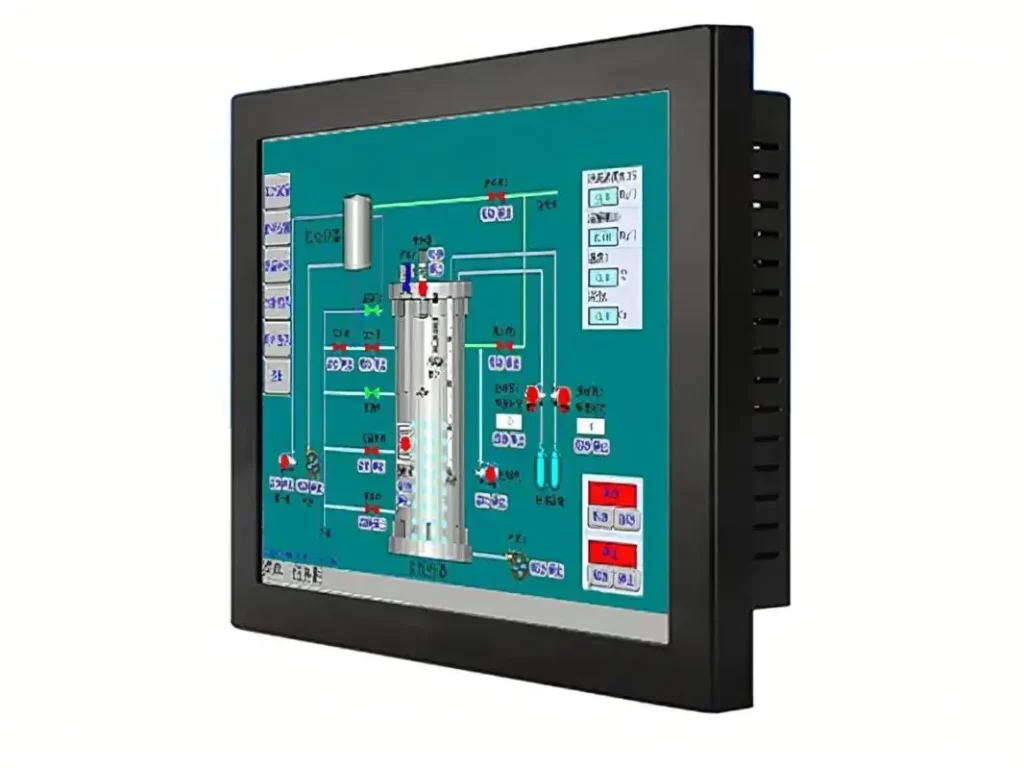目录
ToggleIn industrial and commercial environments where reliability and performance are paramount, the selection of the right LCD screen is crucial. Let’s explore further the features and considerations that define the best industrial LCD screens:

Durability:
Industrial LCD screens must withstand the rigors of demanding environments. They should be built with rugged materials and robust construction to endure harsh conditions such as temperature fluctuations, humidity, dust, and physical impact. From factory floors to outdoor installations, durability is key to ensuring uninterrupted operation.
Sunlight Readability:
Outdoor applications require LCD screens that remain clear and legible even in bright sunlight. High-brightness displays with anti-glare coatings ensure visibility in challenging lighting conditions, making them ideal for outdoor signage, transportation displays, and industrial equipment used in open-air environments.
Customization Options:
The best industrial LCD screens offer a range of customization options to meet specific application needs. These options may include various screen sizes, resolutions, aspect ratios, and interface compatibility (e.g., HDMI, VGA, DVI, DisplayPort). Additionally, the ability to integrate touch screen technology, such as Resistive, Capacitive, or PCAP, allows for intuitive user interaction in industrial control panels, kiosks, and interactive displays.
Environmental Compatibility:
Industrial LCD screens should be designed to operate reliably across a wide range of environmental conditions. This includes extreme temperatures, humidity levels, and exposure to contaminants such as dust, oil, and chemicals. Screens with enhanced thermal management and ingress protection (IP) ratings ensure consistent performance in challenging industrial settings.
Longevity and Reliability:
Industrial LCD screens are expected to provide long-term reliability and consistent performance over extended periods of operation. Components such as high-quality LCD panels, backlighting systems, and electronic controls contribute to the overall lifespan of the screen. Extended product warranties and comprehensive support services further enhance customer confidence in the reliability of the product.
Integration and Compatibility:
Seamless integration with existing systems and equipment is essential for hassle-free deployment. Industrial LCD screens should support a variety of mounting options, connectivity interfaces, and communication protocols to facilitate easy integration into industrial machinery, control systems, and automation solutions.
Compliance and Certification:
The best industrial LCD screens comply with industry standards and certifications to ensure product quality, safety, and regulatory compliance. These may include certifications such as CE (Conformité Européenne), FCC (Federal Communications Commission), RoHS (Restriction of Hazardous Substances), and UL (Underwriters Laboratories), among others.
Scalability and Future-Proofing:
As technology evolves, industrial LCD screens should offer scalability and future-proofing features to accommodate changing requirements and emerging trends. This may include support for advanced display technologies, upgradeable firmware/software, and compatibility with next-generation interfaces and connectivity standards.
By considering these factors, businesses can make informed decisions when selecting the best industrial LCD screens for their specific applications. Whether deployed in manufacturing facilities, transportation hubs, or outdoor environments, a well-chosen LCD screen can significantly enhance productivity, efficiency, and user experience in industrial settings.
0